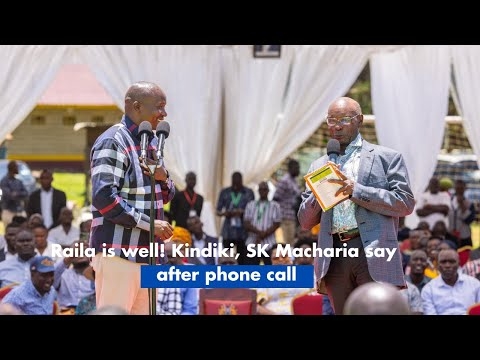The state of the motor insurance sector in Kenya is quite disheartening. This sector requires statutory intervention lest it kills the entire insurance business in Kenya.
Just last week, an acquaintance told me about a bad experience he had a week ago. His vehicle, a Toyota ISIS, got involved in a road accident during night hours and the car radio was vandalised at the site, another Kenyan culture that needs addressing.
His garage determined a repair cost of Sh240,000 but the insurer, who has been collecting premiums all these years, refused to pay for the stolen radio. The insurer had the audacity to offer a paltry Sh90,000 as cash-in-lieu payment for the repairs.
With such a practice being an everyday occurrence across the country regarding how accident claims are being handled in this day and age, it is no wonder insurance penetration has continued to decline.
The President recently wondered out loud regarding the low savings culture in this country. Truth be told, practices in the insurance sector and the land-buying sector have made many Kenyans very cautious with savings or purchases that promise a future long-term benefit.
So where did the sector go wrong when we know that the insurers of yesteryears were very stable and would meet their obligations on time?
The genesis of the problem arose in President Kibaki's era when the economy expanded very fast and suddenly many Kenyans could afford to buy vehicles. Overnight we had insurers who had been writing premiums of a few hundred millions now writing premiums in the tens of billions.
This made many insurer boards greedy. They subsequently employed savvy CEOs to ensure these billions are retained at the end of the year with a promise of hefty bonuses. The rest is history.
Motor claims employees were whipped into not paying in the usual manner and they had to ensure cost-cutting measures were adhered to. It is little wonder that many of the Association of Kenya Insurers forums were over the years for just this matter and continue to date to be about cost cutting without looking at the spiral effect it was to bring towards insurance in general.
Today for motor vehicle repairers the work of accident repairs has become a zero-sum game, a case of you are damned if you do and damned if you don’t. Insurers have invaded the garage repair space and are literary almost employing their own staff to run the garage offices.
The garage of the 1980s and the garage of today are miles apart with regard to control of their business. All terms are being dictated by insurers, to the extent of an insurer sending their own staff to go into downtown dingy corners to buy the cheapest spare parts and deliver them to the garages. All in the name of saving a buck for the shareholders or else they lose their jobs.
It is high time some level of legislation is enacted for the garage sector, which is under constant bullying by insurers. The Competition Authority of Kenya has tried to address this abuse of buyer power by modifying the Service Level Agreement template to be used by garages and insurers but as usual, the insurers have trashed the attempt.
In addition to the interference described above, insurers have gone ahead to delay payments to garages for work done on their behalf with late payment of invoices running into half a year and more. While it is by law required that insurers collect premiums upfront and in cash, it should now become law that insurers pay upfront for services they procure from garages.
With a quick look at the number of garages, spare parts shops and mechanics that work each and every day across the country providing good jobs for young Kenyans, it is imperative for the government to have measures in place to protect this great source of employment for hundreds of thousands of Kenyans.
Garages and vehicle repairers are willing to engage in forums to address the ills in our sector with a view to streamlining the sector. Repairers with long experience will soon be called upon to invest in the motor vehicle inspection regime that is about to be implemented by the government and they are more than willing to participate in actualising such private inspection centres in a bid to improve road safety in our country.
This rot in the motor insurance business will need to be nipped in the bud before it destroys what remains of the industry's credibility.
Chairman, Kenya Motor Repairers Association












